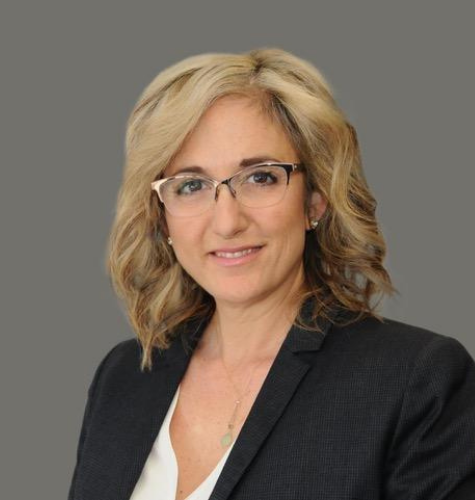Are you unsure of what to expect during the estate planning process? Read this Q&A, prompted by a response we got from “The Perfect New Year’s Resolution: Developing your Estate Plan.”
Q: I am making it my New Year’s resolution to meet with an estate planning attorney but the reason I’ve been putting it off in the first place is that I have no idea what I need to prepare in advance to make the meeting efficient and successful. What kinds of documents do I need to bring with me? What types of questions will the attorney ask?
A: If you have made the decision to meet with an estate planner, congratulations. You will thank yourself in the future. Now, before your meeting, there are some questions you should be prepared to answer. These are some of the major points you will want to consider regarding your estate.
Guardians and Alternate Guardians of Minor Children Who do you want to serve as guardian should something happen to you? Who do you want to appoint as successor guardian if the primary guardian is unable, unwilling, or unavailable to serve? Do you want the guardian’s spouse or another individual to serve as co-guardian? Do you want a different guardian to be appointed for different children? Should a bond be required? Where do you want your minor children to live? Do you want your children to live in their guardian’s home, or would you like your guardian and their family to move into your home? In either case, will there be a need for capital to make improvements to accommodate or house the expanded family unit?
Trustee(s) and Successor Trustee(s) for Minors’ Trust Minors’ Trustees are effectively guardians of the property of your minor children. They oversee the money left to your children if they are still minors (usually when both spouses predecease). The Trustee does not need to be the same person as the guardian, and there are certain merits to keeping them separate, i.e., ensuring checks and balances on the money and distributions, and ensuring that both sides of a family are in contact after the parents are deceased. The guardian is usually someone who you feel can impart the most important values to your children, while the Trustee is someone who can handle money, will be responsible, and have a long-term view of preserving principal while balanced against providing for the minor children.
Age at Which Minor Children Receive Money If both spouses pass away, you need to specify at what age your children will receive distributions of remaining principal. While the Trustee usually has the discretion to distribute both income and principal for the health, education, maintenance, and support for the minors (a fairly broad standard), you need to state at which age the minor children will receive what is left. One common setup is to allow for 100% of the remainder (or their share) at the age of 21, 25, 30, or 35. Another is to allow for one third each at age 25, 30, and 35. Another is to allow for half at age of 25 and the other half at 30 if the child graduates from an (accredited) college or graduate school, otherwise at 30 and 35.
Executors Spouses are usually named executors for the other’s will, as well as successors. An exception can be in second marriages where there are children of the first marriage and the Testator wants to ensure that the assets pass to the children of the first marriage after the death of the second spouse. Things to consider: Do you want your executor to be compensated? Do you want to impose a limitation on the amount of compensation they should receive? Keep in mind that being an Executor (or Trustee) can entail a lot of work – it is essentially managing the aspects of your personal life that you manage now, such as balancing bank accounts and maintaining oversight over assets and satisfying liabilities. Should your Executor be required to post a bond? (i.e., insurance if the Executor loses or absconds with money).
Wills and Credit Shelter Trusts Each spouse can establish a Credit Shelter Trust in his or her will up to the maximum amount that can be exempt from federal estate taxes; currently $5.34 million for 2014 and adjusted annually for inflation. A Credit Shelter Trust can also help save on state estate taxes. This Trust is typically funded at death with the surviving spouse being named the co-Trustee. Each spouse must choose a co-Trustee that the other will feel comfortable serving with. As with any fiduciary, you should choose someone who is responsible and a “prudent” investor, but who will also make distributions to provide for the spouse. You want to choose a “friendly” Trustee that will cooperate, so that if your spouse needs access to principal for a reasonable purpose, the Trustee will not deny that distribution.
Insurance Trust The insurance trust, or irrevocable life insurance trust (ILIT), is often used to set aside cash proceeds that can be used to pay estate taxes, as the life insurance policy should be exempt from the taxable estate of the decedent. Once placed in the trust, the insured person no longer owns the policy, and it will be managed by the Trustee on behalf of the policy beneficiaries when the insured person dies. Again, as with choosing any fiduciary for a living or testamentary trust, you should pick a Trustee that is prudent but not unreasonable, and that the surviving spouse can work with after you die.
Advance Directive (also called Power of Attorney, Health Care Proxy) These are documents that are effective during your lifetime. Spouses usually name each other to make decisions for them, with successor agents to act in the event that the spouse is unable. While you can name one or more co-agents on the Power of Attorney, only one person can act at a time under a Health Care Proxy in New York. Successor agents are critical and should be identified, together with their appropriate contact information.
Living Will A living will is a directive authorizing your agent to withhold certain life-sustaining measures (such as artificial respiration, CPR, resuscitation) in the event that you are suffering from a condition from which you will not recover. Absence of a Living Will does not mean that the agent cannot make those decisions, however, the Living Will gives the health care agent the comfort, assurance, and authority to make those decisions in the event of a dispute with another family member or the hospital or health care professionals.
Special Bequests You should identify any specific items such as art, valuable books, collections, jewelry, heirlooms, or outright monetary bequests that you want to be given to certain individuals, and specify them in your will. New York does not recognize personal property memoranda that are outside the will. It is at the discretion of the Executor whether to honor them, but are non-binding.
Taker of Last Resort and Common Disaster Clause If both spouses and children pass away, where will the money go? Typically it goes to parents, siblings, nieces, and nephews. However, consider the situation of those people – leaving money to your parents could disrupt their own long-term planning needs and any Medicaid or other government benefits they might be receiving.
Goetz Fitzpatrick LLP has been offering clients insightful solutions throughout the New York Metropolitan area since 1967. The firm provides its clients with expertise in the areas of Construction and Real Estate, Trusts & Estates Administration & Litigation, Commercial Litigation, Corporate, Bankruptcy, and Labor & Employment. The firm’s office is located at One Penn Plaza, Suite 3100, New York, NY 10119, Telephone 212 695 8100, [email protected], www.goetzfitz.com. You can learn more about Goetz Fitzpatrick on: LinkedIn | X (Twitter) | Soundcloud | YouTube | Facebook | Instagram






